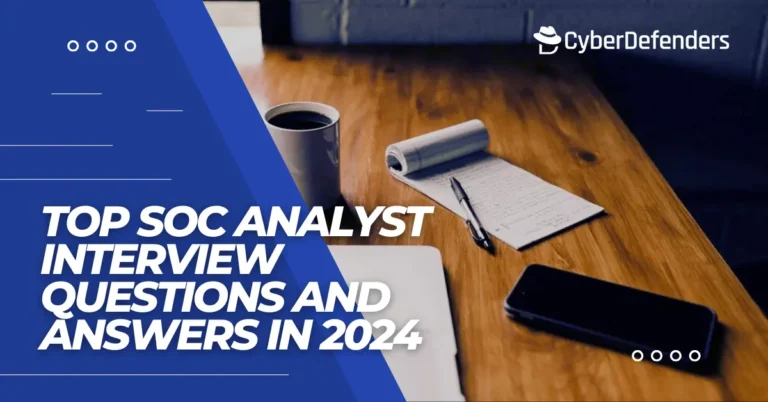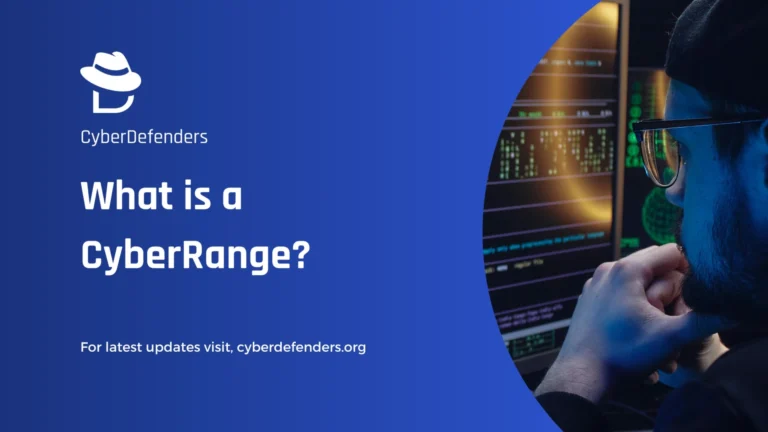DFIR Training: Full Guide To Learn Digital Forensics And Incident Response
Starting your journey in cybersecurity can often feel overwhelming. With a plethora of paths to explore, figuring out where to place your focus is a common challenge many newcomers to the field face.
One area that stands as a cornerstone in the field is Digital Forensics and Incident Response (DFIR), which is crucial for understanding and combating cyber threats effectively.
Digital Forensics and Incident Response combines investigative skills with technical knowledge, aiming to dig deep into security incidents and find out what really happened. This blog unfolds how DFIR training not only equips you with the necessary skills but significantly boosts your cybersecurity career prospects.
From uncovering the nuances of digital forensics to navigating through incident response tactics, we guide you on making informed decisions about choosing the right training resources.
Get ready for insights that could shape your future in cybersecurity!
Read also: Top SOC Analyst interview questions and answers in 2024
Understanding Digital Forensics and Incident Response (DFIR)
Digital Forensics and Incident Response (DFIR) equips cybersecurity professionals with the skills to track down cyber criminals and analyze breaches. This field plays a crucial role in uncovering the details of cyber incidents, ensuring businesses can defend against future attacks.
What is DFIR?
DFIR stands for Digital Forensics and Incident Response. It merges the practices of investigating cybersecurity incidents and managing their aftermath.
At its core, digital forensics involves gathering evidence to understand what happened during a security incident.
This process is crucial for understanding breaches, cyberattacks, or any form of security compromise.
The goal is to methodically collect digital evidence from various sources like computers, networks, and storage devices to piece together the truth.
Incident response picks up where digital forensics leaves off by taking action immediately after an incident is detected. This phase includes efforts to contain the breach, eradicate threats from the system, and recover data or systems affected by the attack.
Read also: Blue Team vs. Red Team in Cybersecurity: Roles & Skills
Together, DFIR equips cybersecurity professionals with a comprehensive skillset for addressing and mitigating cyber threats effectively. Cybersecurity enthusiasts must grasp both sides of DFIR—forensic analysis to trace back the origins of attacks and incident response strategies to contain threats and fortify defenses to bounce back stronger post-incident.
Now let’s explore why mastering DFIR skills can be pivotal in your journey as a cybersecurity professional.
Read also: SOC Analyst Training and Certifications
Importance of DFIR in cybersecurity
Through forensic analysis, DFIR professionals uncover critical information that guides the formulation of effective countermeasures against attackers. This fusion of expertise not only aids in immediate threat containment but also strengthens an organization’s overall security posture.
The value of DFIR extends beyond traditional Computer Security Incident Response Teams (CSIRTs). It is instrumental for remote investigations of endpoints and proactively hunting threats that lurk within networks.
The evidence collected during these investigations serves a dual purpose: it supports legal action against cybercriminals and provides indispensable insights for improving incident response strategies.
By leveraging tools for Linux forensics, malware analysis, and network forensics, investigators gather information crucial for thwarting future attacks and ensuring organizational resilience against evolving cyber threats.
Recommended DFIR Training Resources
Exploring the right DFIR training resources can set you on a path to mastering digital forensics and incident response. These resources offer hands-on experience and expert insights into cyber security, equipping you with the skills needed for real-world challenges.
Free DFIR Training Resources
Starting your journey into the world of Digital Forensics and Incident Response (DFIR) does not have to strain your wallet. Many high-quality resources are available for free, offering valuable knowledge to cybersecurity enthusiasts like you. These resources range from in-depth blog posts to comprehensive Libraries full of research papers, each tailored to enhance your understanding of cyber security.
- Cybersecurity Fundamentals by RITx: This course provides an introduction to cybersecurity principles and practices. Offered by the Rochester Institute of Technology, the curriculum includes topics such as network security, cryptography, and systems administration. The course is designed for individuals new to the field, providing foundational knowledge necessary for understanding digital security measures.
- Cisco’s Cybersecurity Essentials: This course introduces basic concepts of cybersecurity. Offered by Cisco’s Networking Academy, it addresses cyber threats, security protocols, and principles of securing networks. The course targets individuals interested in starting a cybersecurity career, offering an introduction to core security concepts.
- Introduction to Windows Forensics by 13Cubed: offers a primer on basic forensic analysis techniques for the Windows operating system. It guides learners through various Windows artifacts commonly examined during digital investigations.
Each of these free resources serves as a stepping stone towards mastering digital forensics and incident response, helping you learn at your own pace without compromising on quality or depth of knowledge.
Moving on, let’s explore the next level – pursuing DFIR certifications to further solidify your expertise in this exciting field.
DFIR certifications
DFIR certifications are essential for professionals aiming to excel in the digital forensics and incident response field. They validate your expertise and commitment to the ever-changing cybersecurity landscape.
- CyberDefenders’ Certified CyberDefender Certification: The CCD is tailored for individuals aiming to build their careers as digital forensics professionals, SOC Analysts, or threat hunters. It offers a comprehensive, hands-on approach to blue teaming, featuring real-world threat scenarios. The training includes modules on security operations, incident response, and various forensics techniques, all designed to prepare DFIR professionals for what they will face day-to-day.
- GIAC Battlefield Forensics and Acquisition: This specialized course focuses on the techniques and skills necessary for digital forensic acquisition and rapid evidence assessment. It covers a range of topics, including data collection from diverse storage media, rapid triage processes, and forensic handling of digital evidence across different platforms such as PCs, mobile devices, and cloud storage. The course is structured to provide practical, hands-on experience, ensuring participants can apply their knowledge effectively in real-world scenarios.
Earning certifications not only improves your job performance but also opens doors to increased job opportunities in cybersecurity sectors seeking skilled DFIR professionals.
Wrapping Up
Exploring DFIR training opens doors to mastering the skills needed for a successful career in cybersecurity. Start learning and advancing your expertise in digital forensics and incident response to stay ahead in the field.
Begin your DFIR training journey today with CyberDefenders, through practical hands-on labs that teach you the real-world skills you need to defend organizations.




